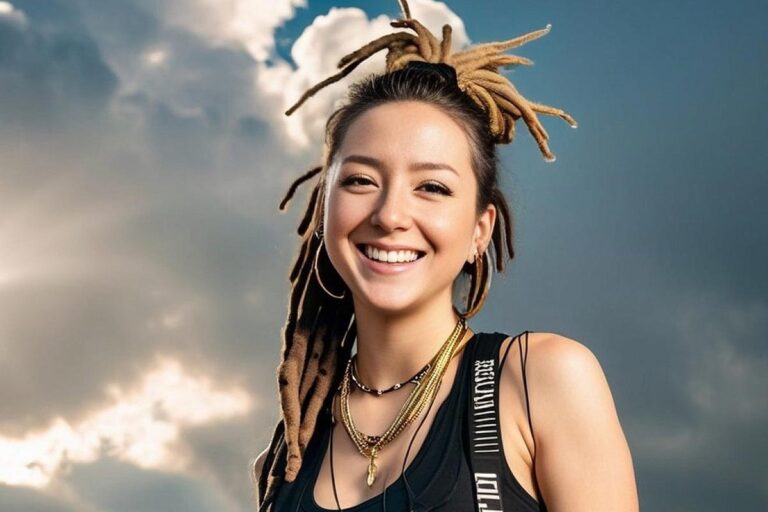
The awarding of a prestigious photojournalism prize to an image capturing a tragic moment from the Oct. 7 attacks has ignited a debate over the ethics of photojournalism and the honoring of victims’ legacies.
The Associated Press was awarded Thursday the prestigious Pictures of the Year International award in the Team Picture Story of the Year category for a collection of photos from Oct. 7.
The award, presented by the Donald W. Reynolds Journalism Institute at the University of Missouri School of Journalism, honors the best of professional photography and is the oldest photojournalism competition in the world.
The collection, titled “Israel and Hamas War,” has been widely criticized for its inclusion of a photo of Supernova Festival victim Shani Louk, lying half-naked and unconscious in the back of a truck with armed Hamas terrorists.

Louk, 23, was initially believed to have been kidnapped, but she was declared dead on Oct. 30 when a piece of her skull was found and identified. Her body remains in Hamas possession.
Let’s unpack the controversy surrounding the image and reactions to the award from Louk’s loved ones and the Jewish world.
Concerns over AP photographer’s knowledge of the Oct. 7 attack plans
Ali Mahmud, an AP photographer who took the photo of Louk, accompanied Hamas terrorists and documented their attacks, which killed 1,200 people and took 253 hostages, including the photo of Shani Louk lying unconscious in the back of a truck.
Questions have been raised about the ethics of photojournalism in connection with Mahmud’s role during the Oct. 7 attacks.
Senior fellow at the Tel Aviv Institute Hen Mazzig hinted that Mahmud, a freelancer for the AP, had prior knowledge of Hamas’s attack as he “came under fire for logging photos during the early hours of October 7th.”
This is how Shani Louk's family asked for her to be remembered. Smiling and alive.
— Hen Mazzig (@HenMazzig) March 28, 2024
The biggest photojournalism competition in the world decided to trample on the family's wishes in favor of giving a photo of Shani's mutilated body a prestigious award. She wasn't even named in… pic.twitter.com/y4L4R35bdA
In February 2024, several survivors of the Nova festival sued the AP for using freelance photojournalists who are believed to be “longstanding Hamas affiliates and full participants in the terrorist attack.”
Media watchdog HonestReporting claimed that the photojournalist may have been aware of plans for Oct. 7.
In a post on X, HonestReporting challenged the AP, asking how it felt to win an award “on the back of Palestinian photojournalists who infiltrated Israel on Oct. 7 and took photos like the one below of Shani Louk’s dead body in a Hamas pickup? Was RJI bothered about that before bestowing the award?”
Congratulations to @AP for winning a Pictures of the Year award. How does it feel to do so on the back of Palestinian photojournalists who infiltrated Israel on Oct. 7 and took photos like the one below of Shani Louk's dead body in a Hamas pickup?
— HonestReporting (@HonestReporting) March 22, 2024
Was @RJI bothered about that… pic.twitter.com/MSasc9yzVp
These allegations have intensified the controversy surrounding the award-winning photo and sparked a broader conversation about the ethics of photojournalism in conflict zones.
Louk’s friends felt that the photo was inappropriate
Following the announcement of the photograph’s win, the Instagram post announcing the award was removed due to being inundated with negative comments and criticism. The photograph of Louk is also featured on the Donald W. Reynolds Journalism Institute’s website.
Two friends of Louk, Shani Cohen and Yuli Tsinker, criticized the photo award as smearing their friend’s legacy.
In an interview with the Daily Mail, Cohen called the awarding of the photo “completely unethical” and said that it was traumatizing to those who knew her.
Shani Cohen, a friend of Louk, called the awarding of the photo “completely unethical” and said that it was traumatizing to those who knew her.
“We took it very personally. Some cried. We shared it immediately as we saw it,” Cohen said. “To see something like this is beyond ridiculous and beyond antisemitic.”
She felt that the photo should not have been made public and should instead only be used for army investigations into what happened on Oct. 7.
Tsinker had a more nuanced take on the matter. On the one hand, she found it difficult to see the photo of Louk with the terrorists, but she also believes it will help the world understand the violence Hamas inflicted on those at the Supernova Festival.
“On the one hand, it’s a really difficult picture, and to win the picture of the year with the body of a young girl next to five men, murderers with weapons, is audacity!” Tsinker said.
“On the other hand, this is also an explanation, that the world will see what they did to such a beautiful, young big-hearted girl who only helped everyone and claimed that there is no such thing as bad people,” she added.
Louk’s father said he supports the photo’s win
Nissim Louk told Ynet that it was a “good thing” that the photo of his daughter’s kidnapping was included in the collection because it showed the world what happened on Oct. 7.
“It’s good that the photo won the prize. This is one of the most important photos in the last 50 years,” Louk said. “These are some of the photos that shape human memory — the Jew raising his hands, the paratroopers at the Western Wall — photos that symbolize an era.”
“I think it’s a good thing to use it to inform the future. If I start crying, what will come of it? This is history. In 100 years they will look and know what happened here,” Louk’s father said of the photo.
He acknowledged the criticism the award selection committee has received but emphasized the importance of showcasing physical evidence of Hamas’ violence against music festival attendees, prioritizing it over emotional reactions.
Louk said that seeing photos of the young victims like his daughter and Noa Argamani — who is believed to be still alive and held hostage in Gaza — is important to dispel misinformation.
“I think it’s a good thing to use it to inform the future. If I start crying, what will come of it? This is history. In 100 years they will look and know what happened here. I travel the world and everyone knows who Shani is,” he added.
Other perspectives on the controversy are mixed
Mazzig sharply criticized the journalism institute for awarding the photo.
He said that it furthered efforts to dehumanize Israelis and victims of the Oct. 7 attacks and did not match the wishes of many of Louk’s loved ones who wanted the world to remember her “smiling and alive.”
“Photos showing violence and death can be newsworthy or important when they humanize the dead or galvanize the public,” Mazzig wrote on X. “The ‘winning’ photo does neither; it only further dehumanizes Shani, retraumatizes her family, and legitimizes Hamas’s actions under the guise of journalistic neutrality.”
“Photos showing violence and death can be newsworthy or important when they humanize the dead or galvanize the public. The ‘winning’ photo does neither,” Hen Mazzig said.
The Israeli Special Envoy for Combating Antisemitism Michal Cotler-Wunsh called the collection’s win the “normalization of antisemitic hate.”
Michelle Frankfurter, an Israeli-American photojournalist and professor at George Washington University, had a different perspective. She told The Forward that it was important for the world to see the photo despite its disturbing nature.
Frankfurter argued that there is historical and political power in photographers sharing violent incidents through their work because it can promote political change.
Frankfurter argued that there is historical and political power in photographers sharing violent incidents through their work because it can promote political change.
“In 1993, a photo showing the naked body of a dead U.S. soldier being dragged through the streets of Mogadishu by a crowd of Somalis sparked similar outrage. The photo won a Pulitzer and spelled the beginning of the end of U.S. involvement in Somalia,” she said.
Frankfurter believes that the photo of Louk’s body is “crucial visual testimony of the atrocities committed by Hamas. What is the role of the photographer if it is not to bear witness?”
Meanwhile, a Change.org petition racked up over 32,000 signatures calling on Nikon, the main sponsor of the award, to denounce the photo award.
